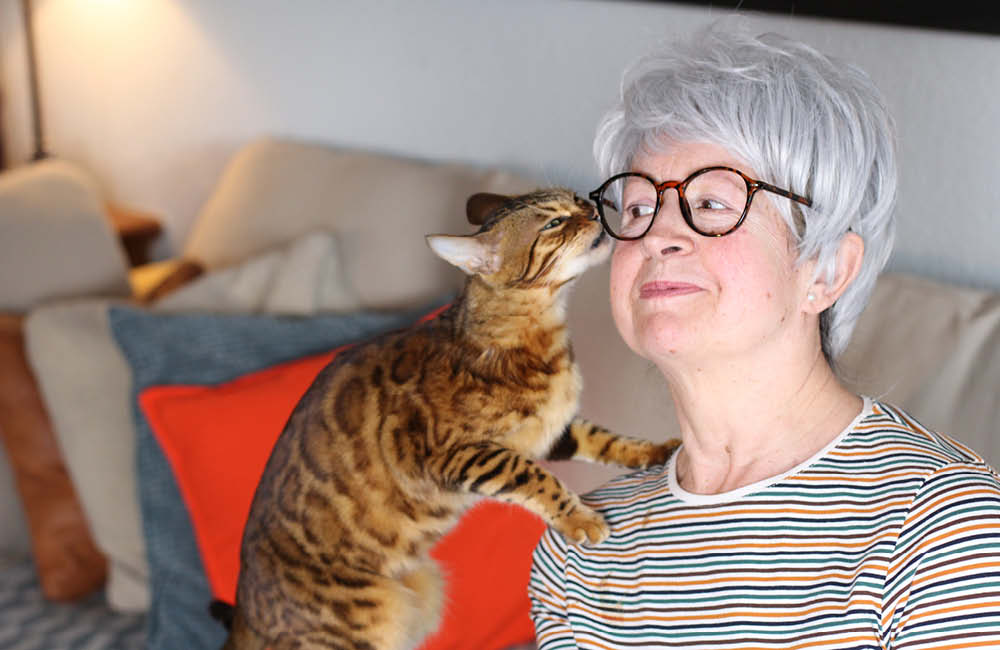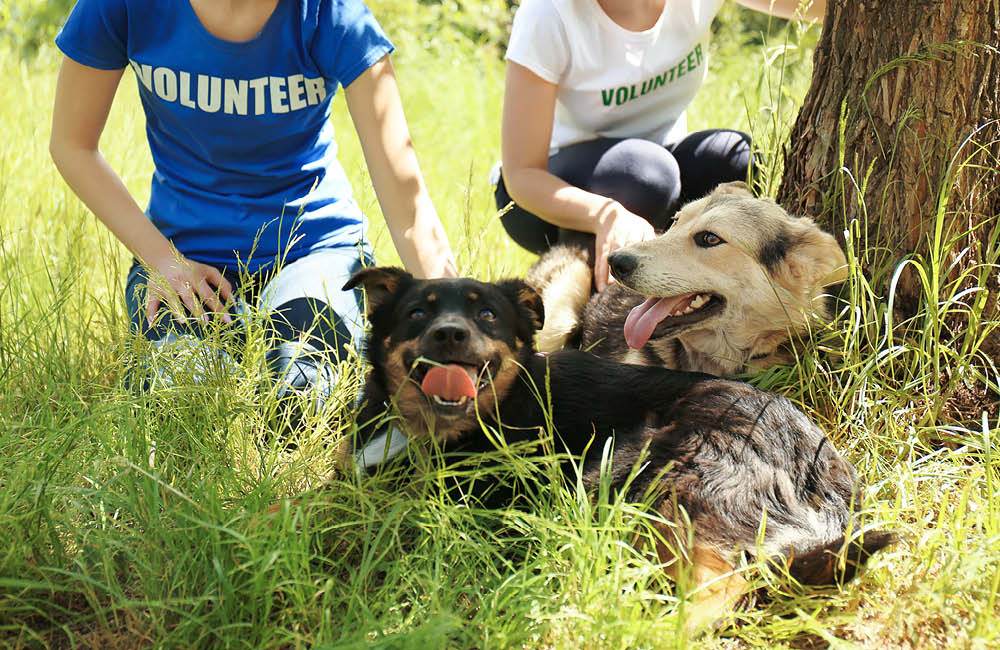The feeling when you come back home after a long day, and you’re greeted by a wagging tail and four paws is something that is known to many of us. For most of us, pets are an integral part of the family and assume different roles in our lives. For me, my Zuni, a five-month-old German shepherd pup is my child. I love to pamper her with treats and toys, and lots of cuddles every time I see her. And she enjoys it all, while also being my protector when we go for our walks. Needless to say, she has become a huge part of my life in the last five months, and has been amazing for both my physical as well as mental health.
Though a majority of pet owners are well aware of the immediate benefits of sharing their lives with companion animals, many of us, however, are unaware of the physical and mental health benefits that come along with snuggling up to a furry buddy. Only recently have scientific studies began to look into the benefits of the human-animal interaction.

Pets have evolved to be highly sensitive to human behaviour and emotions. Dogs, for example, can understand a lot of the words we say, but they're even better at reading our tone of voice, body language, and gestures. A devoted dog will glance into your eyes, just like any good human companion, to measure your emotional condition and try to comprehend what you're thinking and feeling (and to work out when the next walk or treat might be coming, of course).
Pets, particularly dogs and cats, can help with stress, anxiety, and depression, as well as loneliness, exercise, and playfulness. They can also help with cardiovascular health. Taking care of an animal can help children become more secure and active as they grow up. Pets are also a great source of companionship for senior citizens. But, maybe most importantly, a pet can provide you with genuine delight and unconditional love.
Read on to find out how pets have an impact on your mental health:

In Adults
• Playing with a dog, cat, or other pet can increase serotonin and dopamine levels, which help you relax and calm down.
• Companionship can help you avoid sickness and possibly add years to your life, whereas loneliness and isolation can induce triggers of anxiety and epression. Caring for an animal can make you feel desired and loved while diverting your attention away from your troubles, which is especially beneficial if you live alone. Most dog and cat owners communicate with their pets, and some even use them to help them work through problems.
• Pets can help their owners form and keep new friendships by acting as a social lubricant. On walks, treks, or in a dog park, dog owners frequently stop and talk to one another. In pet stores, clubs, and training sessions, pet owners meet new individuals.
• Animal companionship can provide comfort, reduce anxiety, and increase self-confidence for people who are afraid of venturing out into the world. Pets can help you become more conscious and appreciate the delight of the present because they tend to live in the moment—they don't worry about what occurred yesterday or what might happen tomorrow.
• Many pets, particularly dogs, require a consistent feeding and exercise routine. A steady pattern keeps an animal calm and balanced, and it may do the same for you. One forlorn glance from your pet will force you out of bed, regardless of your mood—depressed, anxious, or stressed—to feed, exercise, and care for them.
• Touch and movement are two excellent methods to relieve stress rapidly. Stroking a dog, cat, or other animal lowers blood pressure and makes you feel calmer and less anxious rapidly.

In Older Adults
• You'll lose items that used to occupy your time and give your life meaning as you become older. Your profession may come to an end, or your children may relocate. Caring for a pet can be enjoyable and beneficial to your morale, optimism, and self-esteem. Adopting a pet from a shelter, especially an elderly pet, can give you a sense of accomplishment in knowing that you've given a home to a pet who would have been euthanised otherwise.
• By taking care of yourself, you may overcome many of the physical obstacles that come with age. Playfulness, laughing, and exercise are all encouraged by dogs, cats, and other pets, which can help enhance your immune system and raise your energy.

In Children
• Pets aren't critical and don't issue commands. They are always caring, and their simple presence in the house can help children feel secure. When parents aren't around, having a constant companion might help children cope with separation anxiety.
• A pet can make a child feel important and help them develop a healthy self-image by providing affection and companionship.
• Children who have strong emotional attachments to their pets are better equipped to form bonds with other people.
• A pet can assist in the development of a child's intellect by teaching empathy and understanding. Children can communicate with their pets without fear of rejection, allowing them to gain confidence and expand their vocabulary.

A Note
While it's true that people who have pets tend to have better health than those who don't, a pet doesn't have to be a dog or a cat. If you're allergic to other animals or have limited room but still want a fuzzy pet to cuddle with, a rabbit might be the answer. If you're an older adult, birds can help you maintain your mental sharpness by encouraging social engagement. Reptiles such as snakes, lizards, and other reptiles can be fascinating companions. Even seeing fish in an aquarium can help you relax and reduce your heart rate.
There are still methods to reap the health benefits of being around animals if you don't have the time, money, or capacity to keep a pet full-time. You may, for example, ask to walk a neighbour's dog or volunteer at an animal shelter. Volunteers are welcome to help care for homeless pets or assist at adoption events at most animal shelters or rescue groups. You'll be helping not only yourself but also the animals by socialising and exercising them, making them more adoptable.